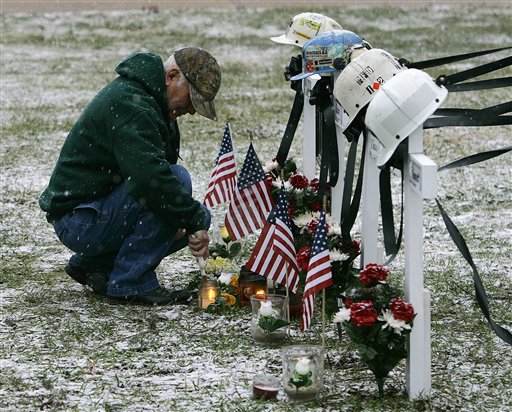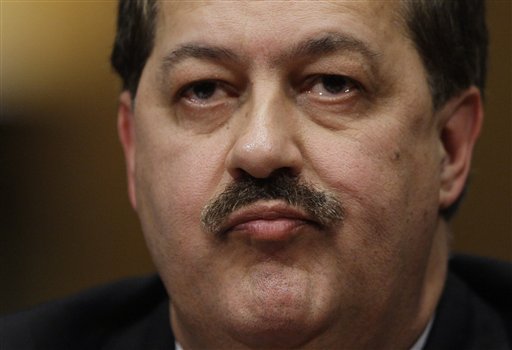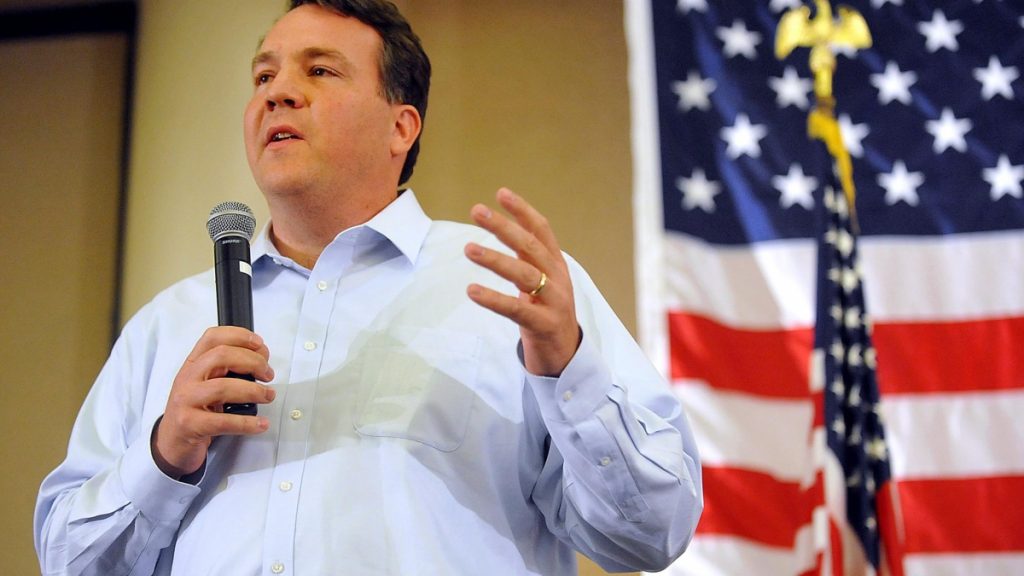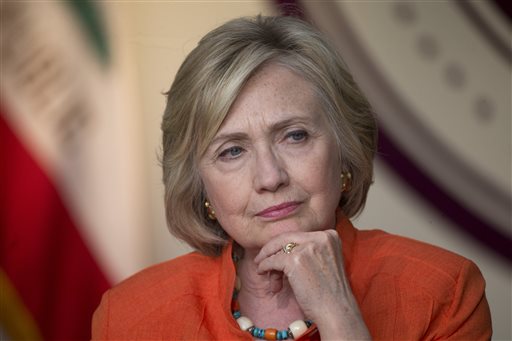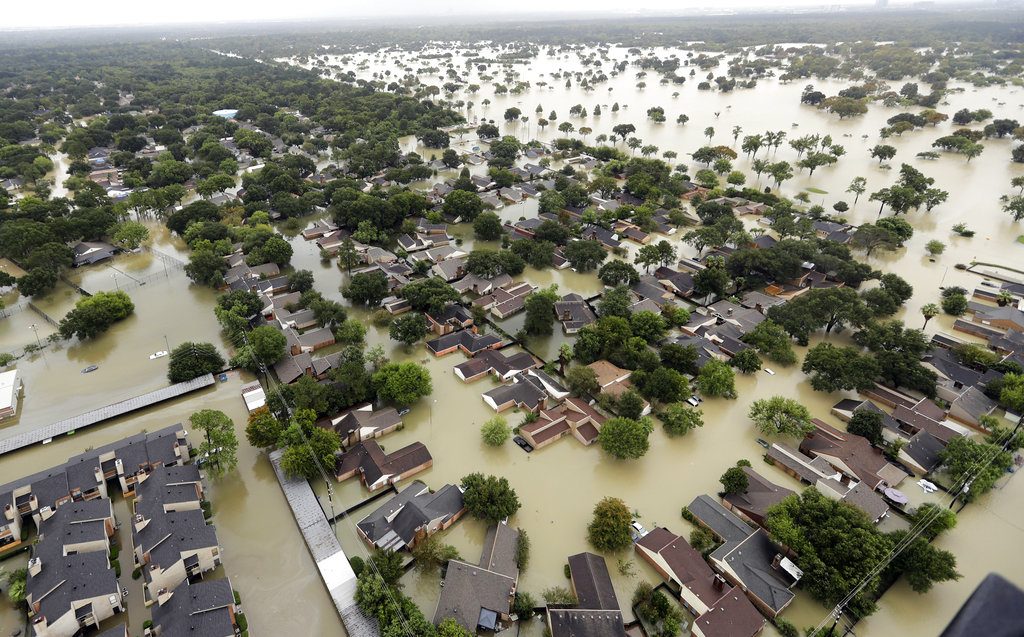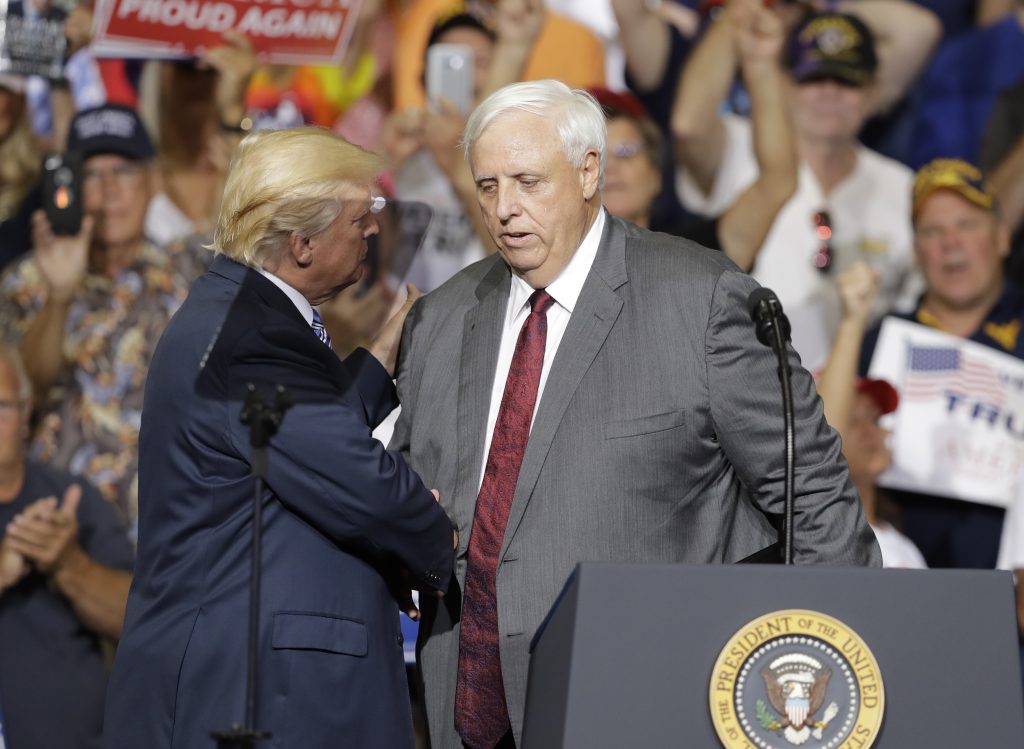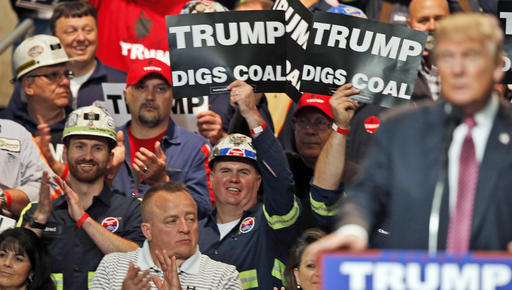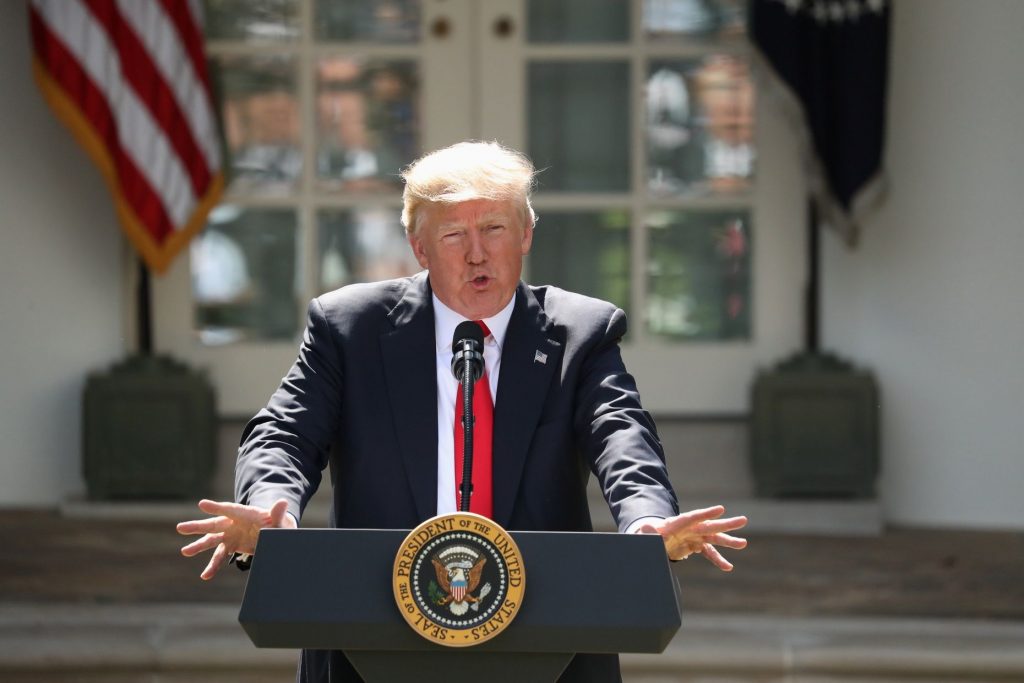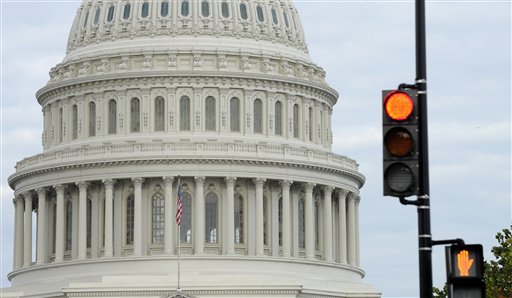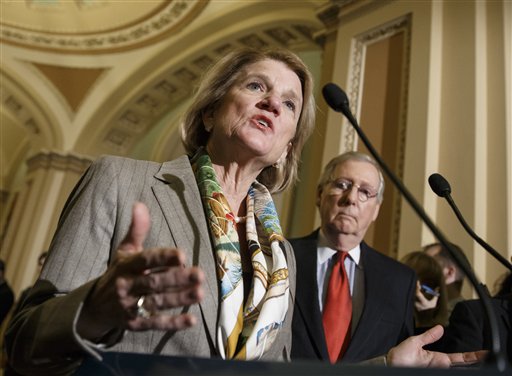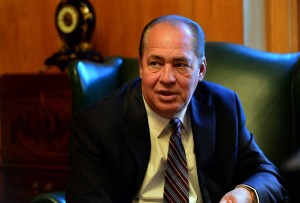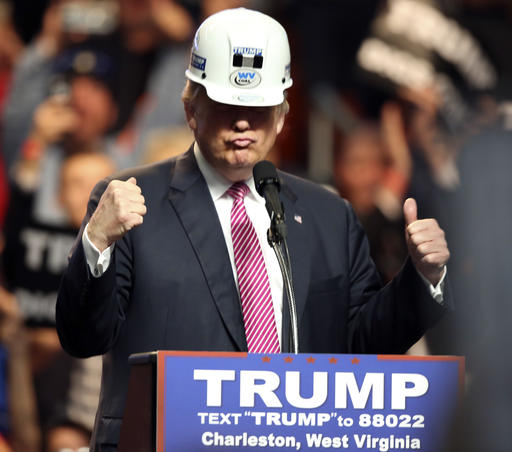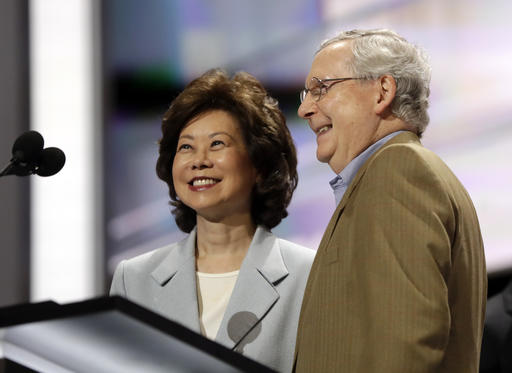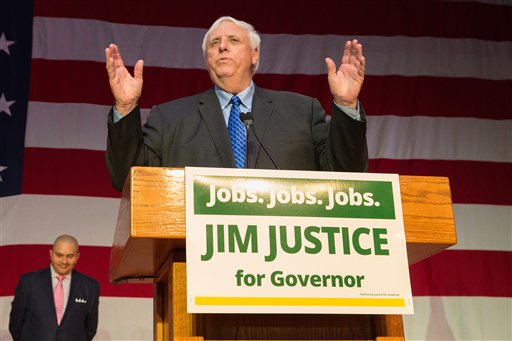The politics of why Don Blankenship isn’t a felon
May 7, 2018 by Ken Ward Jr.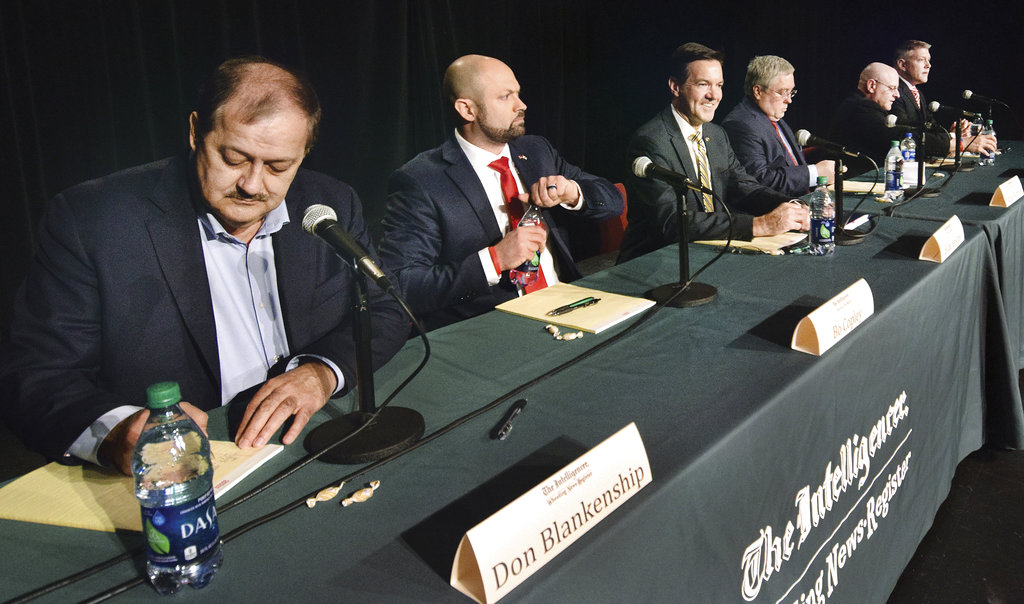
Candidates, from left, Don Blankenship, of Williamson, Bo Copley, of Delbarton; U.S. Rep. Evan Jenkins, R-W.Va., of Huntington, West Virginia Attorney General Patrick Morrisey, of Charles Town, Jack Newbrough, of Weirton, and Tom Willis, of Martinsburg, participate in a debate in Wheeling, W.Va., Monday, April 23, 2018. AP photo.
If you are among those who get a lot of your news from Facebook, you have probably seen a lot of people who aren’t fans of Don Blankenship calling the former Massey Energy CEO a “felon.” Heck, if you are a consumer of a lot of political news from major outlets, you probably saw the word used there a few times as well.
But the fact is that Blankenship, while he is a lot of things, is most certainly not a felon. No, the charge he was convicted of — conspiring to violate federal mine safety and health standards — is a misdemeanor. That’s because the underlying crime he was found by a jury to have conspired to commit — violating those standards — is a misdemeanor.
The difference is important. Not only does it mean that the most time Blankenship could have done in prison for that conviction was one year, but also it means that, really, our society considers what he did to be a minor crime.
As West Virginians go to the polls, though, it’s worth thinking about this a little bit more. Especially so since Attorney General Patrick Morrisey decided, just two days before the primary, that it was time to go after Blankenship for his criminal conviction.
Many of the questions at yesterday’s Morrisey campaign press conference focused on the sort of insider stuff that political reporting thrives on: Why now? Was this some indication Morrisey believed Blankenship was surging in the polls? What if Blankenship wins the primary? Would Blankenship support him against Democratic Sen. Joe Manchin in the fall?
Buried in there was a question that was actually about what kind of position Attorney General Morrisey would take on a piece of legislation that’s pending in the United States Senate. Here’s the exchange:
Question:
Joe Manchin has had a bill out that would actually advance the crime from a misdemeanor to a felony of conspiring to violate mine safety and health standards. Do you support that idea?
Answer:
So I actually would support a law if you knew that there was very clear intent on the part of an executive or on the part of an individual. It’s a very, very serious issue when you’re talking about conspiracy to violate mining standards or things that led to death, that I would be very open to making that a felony. But I think it’s really important to make sure that you have very clear intent in terms of the specifics of the allegation, and so I’d want to take a look at that language. But it’s clear to me that everyone must be accountable within the corporate channels.
Continue reading…

 Subscribe to the Coal Tattoo
Subscribe to the Coal Tattoo

